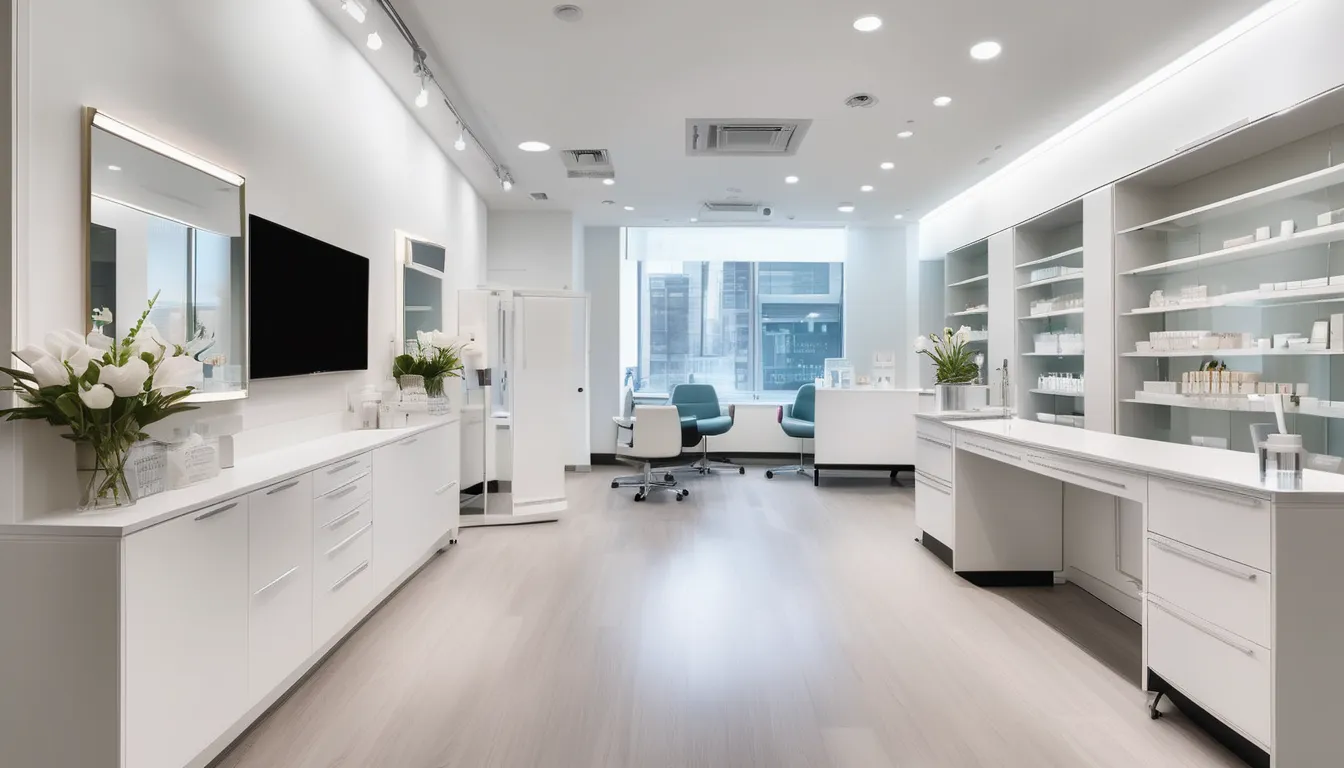You take steps to protect your skin from the sun’s harsh rays, but do you know if it’s enough? As you head outdoors, UV radiation is silently causing damage to your skin, potentially leading to premature aging, dark spots, and even skin cancer. While using sunscreen is a good start, there’s more you can do to safeguard your skin health. What are the most effective treatments and remedies to prevent and repair sun damage, and how can you incorporate them into your daily routine? The answers to these questions can mean the difference between healthy, youthful skin and irreversible damage.
Understanding UV Skin Damage
When you head outdoors, UV radiation from the sun or tanning beds can cause irreversible damage to your skin. This damage can lead to premature aging, dark spots, and even skin cancer.
UV radiation penetrates deep into your skin, damaging the skin cells’ DNA and causing mutations that can lead to serious health issues.
You’ll notice the effects of UV radiation in the form of sunburn, which is a clear sign that your skin is trying to protect itself from further damage. However, even if you don’t get sunburned, UV radiation is still causing damage.
This damage can be cumulative, meaning that repeated exposure to UV radiation over time can lead to serious health issues.
It’s essential to be aware of the risks associated with UV radiation and take steps to protect yourself. This includes seeking shade, wearing protective clothing, and avoiding tanning beds.
Choosing the Right Sunscreen
Choosing the Right Sunscreen
With UV radiation posing a significant threat to your skin health, choosing the right sunscreen is crucial for effective protection. As you browse the numerous options available, you’ll want to focus on the key characteristics that make a sunscreen effective. Look for a broad-spectrum sunscreen that protects against both UVA and UVB rays.
| Characteristic | What to Look healthy glow cymbiotika |
|---|---|
| SPF | 30 or higher for optimal protection |
| Water Resistance | At least 40 minutes for water or sweat-prone activities |
| Skin Type | Non-comedogenic for acne-prone skin or hypoallergenic for sensitive skin |
| Active Ingredients | Zinc oxide or titanium dioxide for physical sunblocks |
| Expiration Date | Ensure the sunscreen is not expired for maximum efficacy |
When selecting a sunscreen, consider your lifestyle and skin type to ensure you’re choosing the right product for your needs. Always follow the recommended application instructions and reapply as directed to maintain optimal protection.
Protective Clothing and Accessories
Most of your sun protection arsenal may consist of sunscreen, but incorporating protective clothing and accessories is just as crucial for optimal defense against UV radiation. You should look for clothing with a UPF (Ultraviolet Protection Factor) rating of 50+, which means the fabric allows only 1/50th of the sun’s UV radiation to pass through.
You can also wear clothing that covers your skin, such as long-sleeved shirts, pants, and a wide-brimmed hat.
In addition to clothing, accessories like sunglasses and umbrellas can provide extra protection. When choosing sunglasses, opt for ones that block 99-100% of UVA and UVB rays.
You can also consider wraps or scarves that can cover your neck and ears when you’re outside. Don’t forget to wear a hat with a wide brim to protect your face, neck, and ears from the sun.
Natural Sun Protection Remedies
Several natural remedies can help boost your sun protection arsenal.
These remedies can be used in conjunction with other protective measures, such as clothing and accessories, to provide an extra layer of defense against the sun’s harmful rays.
While they shouldn’t replace other forms of protection, they can be a valuable addition to your sun protection routine.
Some natural remedies you can try include:
- Aloe vera: Aloe vera has anti-inflammatory properties that can help soothe sunburned skin and reduce redness. You can apply aloe vera gel directly to the affected area to help calm and protect your skin.
- Green tea: Green tea contains antioxidants that can help protect your skin from damage caused by UV radiation. Drinking green tea regularly can help boost your skin’s natural defenses against the sun.
- Pomegranate: Pomegranate extract has been shown to have natural sun-protective properties, making it a popular ingredient in many sun care products.
Advanced Treatments for Sun Damage
When you’ve experienced prolonged sun damage, you may need more than just natural remedies to restore your skin’s health.
Advanced treatments can help address severe sun damage, such as deep wrinkles, age spots, and uneven skin tone. One of the most effective treatments is chemical peels, which use strong concentrations of alpha-hydroxy acids (AHAs) or beta-hydroxy acids (BHAs) to exfoliate the skin and stimulate collagen production.
Microdermabrasion is another advanced treatment that can help improve skin texture and reduce the appearance of fine lines and wrinkles. This non-invasive procedure uses fine crystals to gently remove dead skin cells and smooth out the skin’s surface.
For more severe sun damage, laser treatments such as fractional CO2 lasers or pulsed dye lasers can be used to stimulate collagen production, reduce age spots, and improve skin texture. These treatments are typically performed by a dermatologist or skincare professional and may require multiple sessions to achieve optimal results.
Conclusion
You’ve learned the importance of sun protection in maintaining healthy skin. By using broad-spectrum sunscreen, protective clothing, and natural remedies, you’re taking a proactive approach to preventing UV damage. If damage occurs, advanced treatments like chemical peels, microdermabrasion, and laser treatments can help stimulate collagen production. Now that you have this knowledge, put it into practice and make sun protection a priority for a lifetime of healthy, radiant skin.


